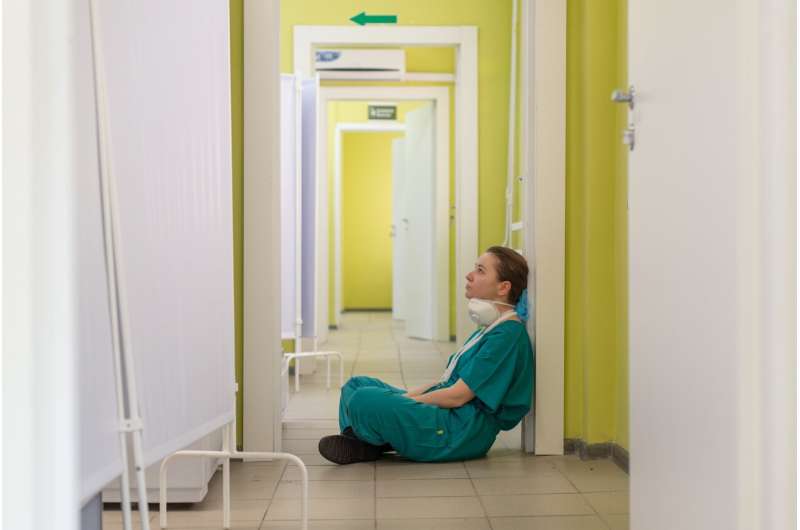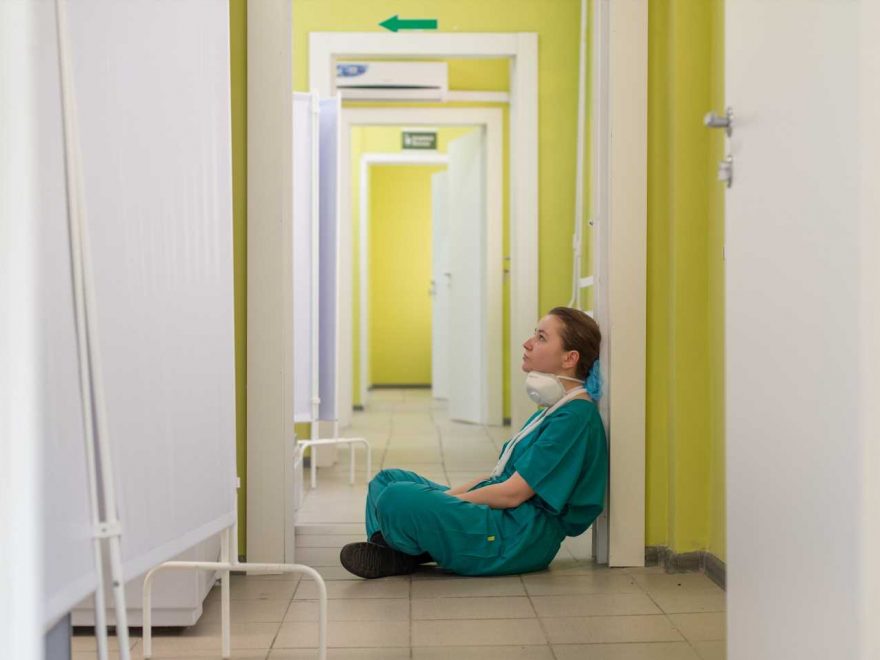
Nurses and midwives feel “forever altered” by the impact of COVID-19 and remain deeply affected by what they experienced, new research from the
University of Surrey reports. None felt they came through the last two years unscathed.
Researchers say that there is an urgent need to tackle stigma to create a psychologically safe working environment and have called for a national COVID-19 nursing workforce recovery strategy to retain nurses and help restore their psychological well-being.
Jill Maben, Professor of Health Services Research and Nursing at the University of Surrey, said: “Nurses and midwives put their own health and psychological well-being on the line for the public during the pandemic and many unfortunately lost their lives. Others experienced burnout, high levels of moral distress and PTSD. We have a duty as a society to take care of frontline staff who experienced such extreme psychological and emotional distress during this pandemic.
“To prevent a mass exodus of our nursing and midwifery workforce, it is important that they are offered the care and support that they need. A new national strategy focusing on their well-being is essential. The support currently offered is a good start in improving well-being, however more needs to be done at organizational levels (not just letting the responsibility rest with the individual nurse or midwife) as a one size fits all approach does not work.”
The findings are published in the International Journal of Nursing Studies, as part of the ongoing Impact of COVID on Nurses (ICON) longitudinal interview study which arose from the ICON survey, researchers examined the impacts of the pandemic on frontline nursing staff’s psychological and emotional well-being during the second wave of the COVID-19 pandemic.
Interviewing nurses and midwives from across the country, researchers identified high levels of distress amongst participants about the lack of compassionate care they were able to offer patients during this time.
One nurse, spoke about her distress and embarrassment about the care her patients received while she was redeployed, and her hope that investigations would be launched into patient care after the pandemic.
Redeployment was also found to have caused trauma to nurses, with many being unaccustomed to caring for high numbers of critically ill patients and being witness to such high numbers of patient deaths. A lack of trust between existing and redeployed nurses was also identified with many experiencing distress when forced to carry out tasks that they felt insufficiently trained to do and were concerned that their professional registration may be endangered.
Stigma was a factor in some nursing staff not accessing counseling services during the first wave of the pandemic. Some participants referred to the notion that nurses seeking counseling would be viewed as a ‘sign of weakness.” Those who did seek out counseling often did so through anonymous sources such as charities or Trade Unions suggesting a lack of trust in the confidentiality of resources offered by employers.
Source: Read Full Article
